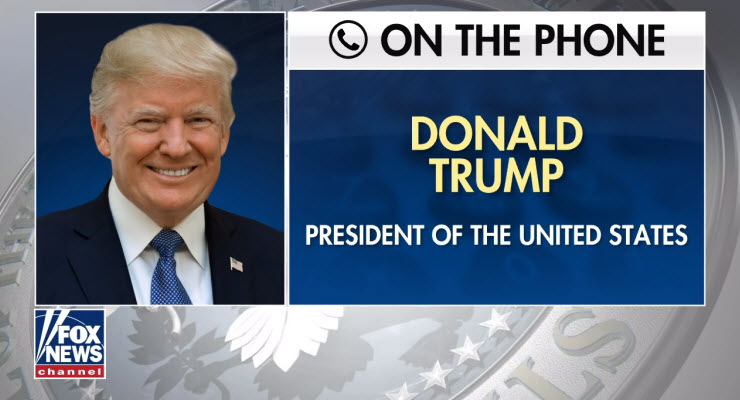
Fox News is by far Rupert Murdoch’s greatest success of the last quarter-century. It’s also been his most successful fusion of commercial profitability with his desire to be a central political player.
Founded in 1996, its chief executive for the first 20 years was Roger Ailes. Murdoch and Ailes was a marriage made in right-wing heaven. They shared extensive contacts in Republican politics, a disdain for mainstream journalism and a combative competitiveness.
Murdoch brought his capital, his financial courage and his sense of business strategy. Ailes brought energy and decisiveness and deep expertise in television and propaganda.
It’s not simply that Fox offered a more conservative alternative to other TV networks. Rather, more than any other network its sense of newsworthiness was determined by its immediate political agenda. There was heavy and positive coverage of the heady early days in the Iraq War. When the conflict started to sour, Fox ignored it.
Its constant diet of confected outrage fed its audience’s sense of resentment. An early directive in this most centralised and hierarchical of news organisations was to “seek out stories that cater to angry, middle-aged white men who listen to talk radio and yell at their television”.
In 2002 it overtook CNN as America’s top cable news channel, a position it has occupied for most of the time since. It has been one of the most profitable parts of Murdoch’s empire.
As Fox succeeded commercially, Ailes’ and Murdoch’s political ambitions grew. Any sense of professional restraint disappeared. Fox commentators called on-air for viewers to donate to favoured candidates; it promoted rallies to be held by the right-wing Tea Party; it offered commentary positions to prominent Republicans; it actively sought to recruit Republican candidates.
By 2016 the stars were aligned. Donald Trump had appeared frequently on Fox, and Fox had given great publicity to his outrageous “birther” campaign, claiming that Barack Obama had not been born in America. This evidence-free conspiracy was a forerunner of much to come.
By the time of the Republican convention, Trump was Fox’s favoured candidate, and his eventual election brought about a relationship between a head of government and a news organisation unprecedented among English-speaking democracies.
Trump was a TV news junkie, in particular a viewer of Fox, and he would often respond in real time. Fox was also Trump’s preferred outlet when he wanted to give an interview or make a statement, knowing he would not be questioned but that other media would feel compelled to carry what he said.
For journalists from other organisations, two daily tasks became mandatory every day: check what Trump had tweeted, and monitor Fox News.
Fox was at its political pinnacle, and for the next four years faithfully marched in step with its most important viewer’s agendas. But it was also on a slippery slope of professional compromise which by 2020 was provoking more acute dilemmas.
First came the pandemic. Trump’s inability to confront COVID-19 — to use the national government’s capacity to coordinate and mobilise the states’ responses — is one of the greatest leadership failures in living memory.
Instead Trump blamed the “China virus” and the failure of “blue states”, promoted quack cures, and held out false hopes that it was all about to disappear. And Fox, like its political patron, developed a herd immunity to evidence.
The same was true during the 2020 election race. Fox campaigned strongly for Trump, but the post-defeat denial of reality brought new tests, as Trump built an edifice of conspiracy without any foundation in evidence. Fox News gave considerable uncritical coverage to Trump’s claims about vote dumps. “We saw blatant election-law violations in state after state,” said Sean Hannity. Still, the evasion of reality was becoming more difficult and creating strains inside the organisation.
The attacks on the Capitol again caught Fox’s commentators off balance. Tucker Carlson defended the rioters as “solid Americans” who are “deeply frustrated”; Hannity said most of them were peaceful. Elsewhere some claimed they were left-wing infiltrators. But majority opinion, even inside the Republican Party, was shifting decisively.
Fox News’ dilemmas are just beginning. Already some of its audience has defected to even more outrageous right-wing populist outlets like Newsmax and One America News. It remains to be seen whether these will have deep enough pockets and the editorial stamina to keep on fragmenting Fox’s populist constituency.
In 2009, Ailes was in no doubt about Fox’s position, immediately casting it in an oppositional role to America’s first black president. On day two of Obama’s presidency Hannity promised Obama “is not going to succeed”. On day three Laura Ingraham declared “our country is less safe today”. On day four Glenn Beck said Obama had declared the end to the war on terrorism.
This approach succeeded for Fox in 2009. But after four years of continual confrontation, and of a presidency that thrived on creating chaos, it’s less clear whether it’s a viable strategy in 2021.
Rod Tiffen is an emeritus professor of government and international relations at Sydney University and the author of Rupert Murdoch: A Reassessment.
For more on how Murdoch helped give us Trump, go here.







Crikey is committed to hosting lively discussions. Help us keep the conversation useful, interesting and welcoming. We aim to publish comments quickly in the interest of promoting robust conversation, but we’re a small team and we deploy filters to protect against legal risk. Occasionally your comment may be held up while we review, but we’re working as fast as we can to keep the conversation rolling.
The Crikey comment section is members-only content. Please subscribe to leave a comment.
The Crikey comment section is members-only content. Please login to leave a comment.